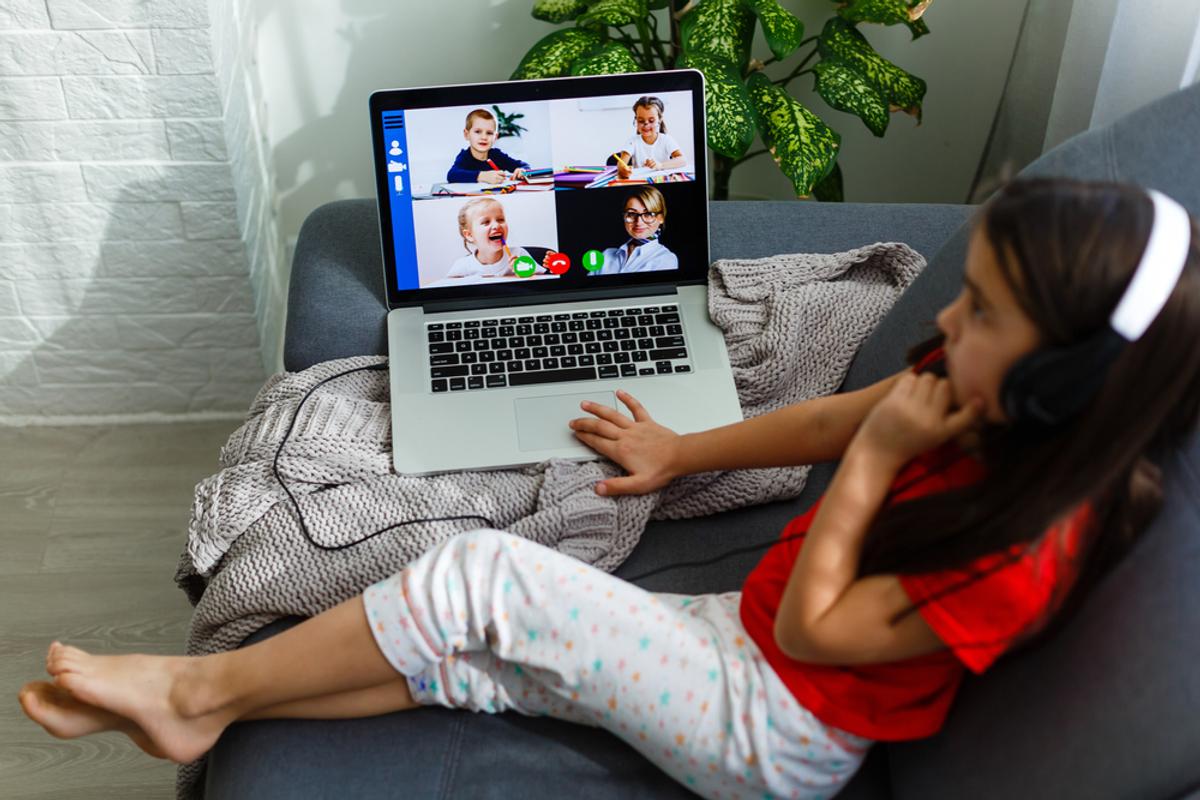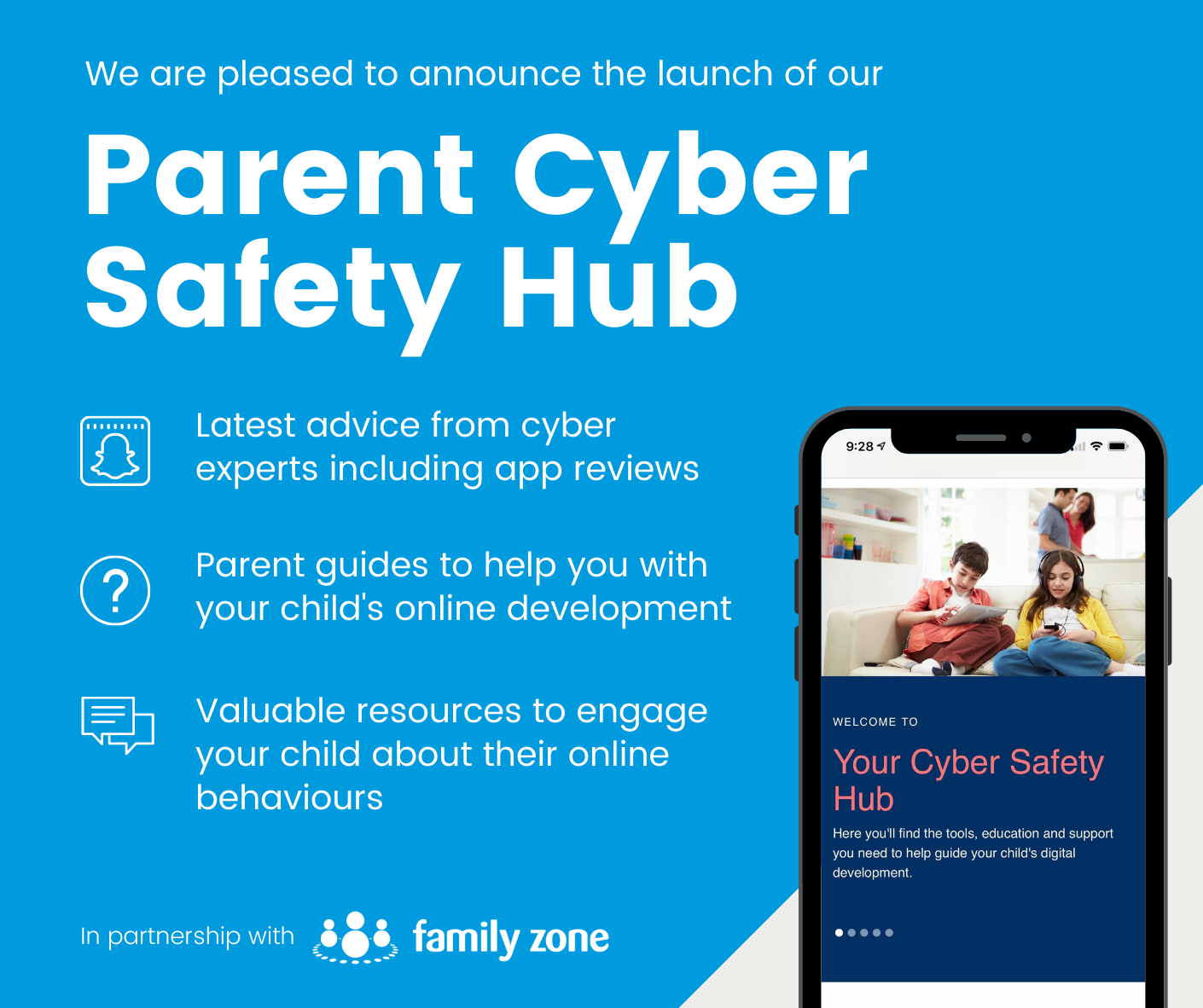Cyber Safety

Will your child's 'digital hangover' lead to school refusal?
Experts are warning of a coming wave of school refusal - and kids who suffer from a ‘digital hangover’ are at special risk.
There’s been no shortage of family stressors these school holidays. Just when we thought it was safe to relax into summer fun, the Omicron invasion sent COVID case numbers spiraling to unprecedented heights.
With restrictions reintroduced, travel cut off, and the threat of contagion hanging over holiday plans like a thundercloud, it’s no wonder so many of us have sought solace - and safety - in our screens. Scrolling endlessly through our feeds. Playing the kinds of games that don’t require a mask or vax certificate. Bingeing on Netflix, Stan, Amazon Prime or, well, Binge.
For adults, getting back to work after yet another holiday “break” shortcircuited by COVID may be a bleak prospect. But we’re the grown-ups. We’ll handle it.
For kids set to return to school, the going may be much tougher. For many, the longer-than-ever hours logged online during the holiday season will leave kids with what experts are calling a “digital hangover” - culminating in reluctance, and even downright refusal, to engage with the offline world.
The likely result? A veritable epidemic of school refusal.
School refusal: What it is, and why it happens
School refusal is what happens when children resist engaging in instruction, become emotionally shut down in the classroom, or resist going to school altogether. In 2021, the pandemic was already driving a wave of school refusal, as kids who’d grown accustomed to screen-based remote learning balked at returning to in-person classes.
School refusal is what happens when children resist engaging in instruction, become emotionally shut down in the classroom, or resist going to school altogether.
And little wonder. Remote learning fostered entirely different habits - from sleeping in and doing schoolwork in pajamas to watching recorded classes on demand.
The prospect of suddenly attending class in-person, dealing with teachers and peers face-to-face and in real-time, ramped up anxiety for many children.
It also created disruption for teachers, as kids acted out, their tolerance for frustration at an all-time low.
It’s a scenario likely to repeat itself after a long holiday break, say experts. Kids who have spent much of their vacation time in front of a screen will find the return to school that much more confronting - and possibly even frightening.
“Repeated habits can form mental grooves in our brain,” explains Family Zone cyber expert Dr. Kristy Goodwin, digital wellbeing speaker, author and researcher. It’s logical, she says, that kids would want to maintain that habit.
Kids who have spent much of their vacation time in front of a screen will find the return to school that much more confronting - and possibly even frightening.
“Young people’s tech habits are often difficult (not impossible) to break because the habits have a dopamine-driven feedback loop that further perpetuates their behaviour (it’s a habit that feels good, so why would they want to stop?).”
What’s more, notes Dr. Kristy, “the brain likes predictability. … Young kids may not have the emotional vocabulary to convey their feelings, but …. their daily dose of digital may have provided them with the rhythm and routines they hankered for (and want to hold on to).”
Larger problems
It’s important to note that school refusal is not a disorder in itself, but may be a symptom of a larger problem - anxiety or depression, most commonly. Children who refuse to engage with school may exhibit fear, panic or meltdowns. Physical symptoms of anxiety like headaches and stomach aches may also be in evidence.
Parents need to be aware that the longer a child stays out of school, the harder it will be to return, as they risk falling behind both academically and socially.
How parents can deal
Thankfully, there’s a lot parents can do to help kids transition back to regular school attendance, says Dr. Julia Martin Burch, staff psychologist in the McLean Anxiety Mastery Program at McLean Hospital. She advises:
- Act quickly. “Missed schoolwork and social experiences snowball, making school avoidance a problem that grows larger and more difficult to control as it rolls along. Be on the lookout for any difficulties your child might have around attending school on time and staying for the full day. If the problem lasts more than a day or two, step in.”
- Work with your school. Speak with the school guidance counselor, psychologist or social worker and work together to create a plan that addresses problems in a measured way.
- Be empathetic but firm. “It’s important for anxious children and teens to learn that they can persevere,” says Dr. Burch. So reassure your child that you’re confident they can deal with their fears.
- Restrict device use. Dr. Burch recommends making a day at home less appealing - ideally, by removing screens and disconnecting the internet. Ask teachers to send hard-copy homework, and do your best to “make staying home boring.”
Reference: https://www.familyzone.com/anz/families/blog/digital-hangovers-lead-to-school-refusal
Cyber Safety Hub
We are delighted to introduce you to a new resource made available to you through our partnership with Family Zone - our new school Cyber Safety Hub.
As you may already be aware, our partnership provides your family with access to the Family Zone tools to use at home with your children if you wish. The purpose of the Cyber Safety Hub is to complement those tools with practical guidance and information to further support you in engaging with your children in their digital development. These tools and resources also allow the school and parent body to work together on creating a holistic approach to guiding each student's online journey.
About the Parent Cyber Safety Hub
The Cyber Safety Hub includes resources to help your family better understand the different Family Zone tools available to you and how to use them, plus access to regular cyber safety events to help you stay informed about the latest digital trends.
Also, the Cyber Safety Hub provides expert advice from leading cyber experts, ySafe, on the most pertinent issues and frequently asked questions around platforms like TikTok, Fortnite, Instagram, and more. There are app reviews with age and safety recommendations, along with a range of guides to help ensure healthy boundaries around screen-time & gaming, plus step-by-step instructions for using parental controls and filtering out inappropriate content.
We are very excited to be able to offer you this level of expertise and support. We look forward to working closely with you as we develop the cyber safety conversation within our school community.



